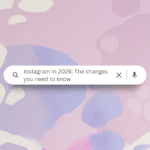If you want to maximise your product or service potential, you need to first have an in-depth understanding of your target market. Who are you selling to? Understanding why your target market would buy your product or service and what your product or service means to them is critical in growing sales.
Today, understanding your target market goes beyond demographics. Businesses now have access to data insights through tools like Google Analytics, Meta Audience Insights, and CRM systems. These help identify not just who your customers are, but how they behave online — what they search for, how they interact with content, and what drives them to convert. Knowing this helps you build stronger, more personalised connections that improve engagement and loyalty.
Here are some steps in helping you to identify your target market.
What are you selling and what is your unique selling point (USP)?
What makes your product or service different from what other companies are offering? Once you have a good idea of what this is, you can then start to work out who is most likely to need what you are offering.
Your USP should also reflect your brand’s online positioning. Consider how your business appears in search results, on social media, and within AI-generated summaries. Clear, consistent messaging ensures your audience quickly understands what sets you apart — whether they find you on Google, TikTok, or LinkedIn.
Paint a picture of the person you want to sell to.
Start with a list of all the different people who would purchase what you are offering. Ask yourself questions like:
- Sex
- Age
- Education
- Employment Status
- Marital Status
- Income
- Where do they live
- Personality
- Attitudes/Values
- Interests/Hobbies
- Lifestyle
- Behaviours
Define the individual in as many relevant ways as possible.
Today, customer personas often include digital attributes such as:
- Online behaviour (search terms, website visits, content preferences)
- Devices used (mobile, desktop, voice search)
- Social media platforms they engage with most
- Buying triggers or barriers (reviews, sustainability, convenience)
Using this data allows you to develop data-driven personas that reflect real habits and motivations rather than assumptions.
Why would these people buy what you are offering?
Answer the following:
- Who will be most likely to purchase your product or service?
- Who will have the most to lose if they don’t have what you’re offering?
If you can identify why it is more important for people to purchase what you’re offering than not at all, then your offering is compelling.
Modern consumers often buy for reasons beyond functionality — such as shared values, social proof, or sustainability. Understanding these emotional and ethical motivators can give your brand a significant advantage. Monitor reviews, social media comments, and customer surveys to uncover what truly matters to your audience.
Evaluate your decision
Once you’ve decided on a target market, be sure to consider the following:
- Are there enough people that fit this criteria?
- Will these people really gain benefit from your product or service?
- Will these people see a need for your product or service?
- Can they afford your product or service?
- Can I reach them in my messaging?
- Are they able to be accessed?
At times, it can be difficult to find out this information; however, try searching online for research that other companies have done. Search for magazine articles, forums, survey results, or blogs that talk about your target market. If you have current customers who are a perfect fit, ask them for feedback.
You can also leverage online tools such as Google Trends, social listening platforms, and customer analytics to validate your decisions. Analysing search trends and digital engagement data can confirm whether your target audience is large enough — and reachable — through modern marketing channels.
Segment
From the list you identified earlier, group individuals into similar types of people. From this grouped list, identify which one is most likely to purchase your product or service. This group of people are called your Primary Target Market. It is this Primary Target Market you should focus all your efforts on attracting to purchase your product or service.
Segmentation today can also include:
- Behavioural data (how users browse, click, or purchase)
- Psychographic data (values, interests, and lifestyle choices)
- Technographic data (devices, platforms, or apps used)
This richer view helps refine your messaging, personalise campaigns, and improve conversion rates across digital touchpoints.
Know your target market segment intimately
Society has changed dramatically over a relatively short period of time. People can consume information from many sources at any time of the day they choose. The internet has allowed every person to enjoy a unique viewing experience.
It is more critical than ever to know your segment intimately in order to target them. It’s more important to be a big fish in a small pond than being everything to everybody, which leaves you vulnerable to becoming nothing to anybody.
With so many digital platforms and algorithms competing for attention, focusing on your niche ensures your message cuts through. Understanding your audience’s preferred content types — whether it’s video, articles, or social stories — allows you to meet them where they are most active.
Research your primary target market segment
Once you have segmented your target market into similar types and identified which one is your primary target segment, try to understand their consumer behaviours intimately.
Defining your target market is the hard part. Once you know who you are targeting, it is much easier to identify the media you can use to reach them and what marketing messages will be best suited to them. This will, in turn, help you to save money and get a better return on investment.
In today’s environment, this includes choosing between organic and paid channels, leveraging SEO and Generative Engine Optimisation (GEO) for visibility in both traditional and AI-powered search, and tailoring your content for personalisation. The better you understand your audience’s journey and preferences, the more effectively you can deliver messages that resonate and drive results.







